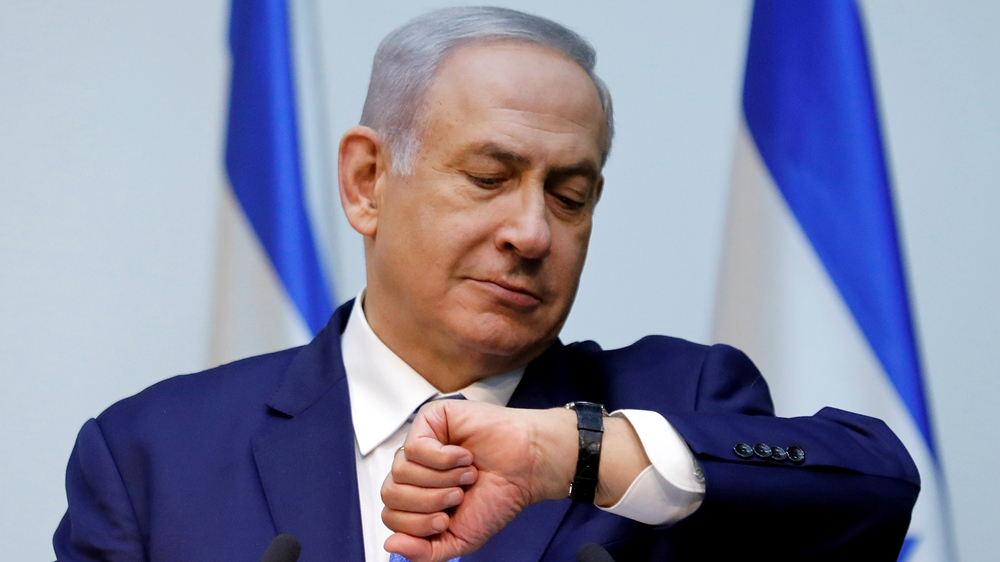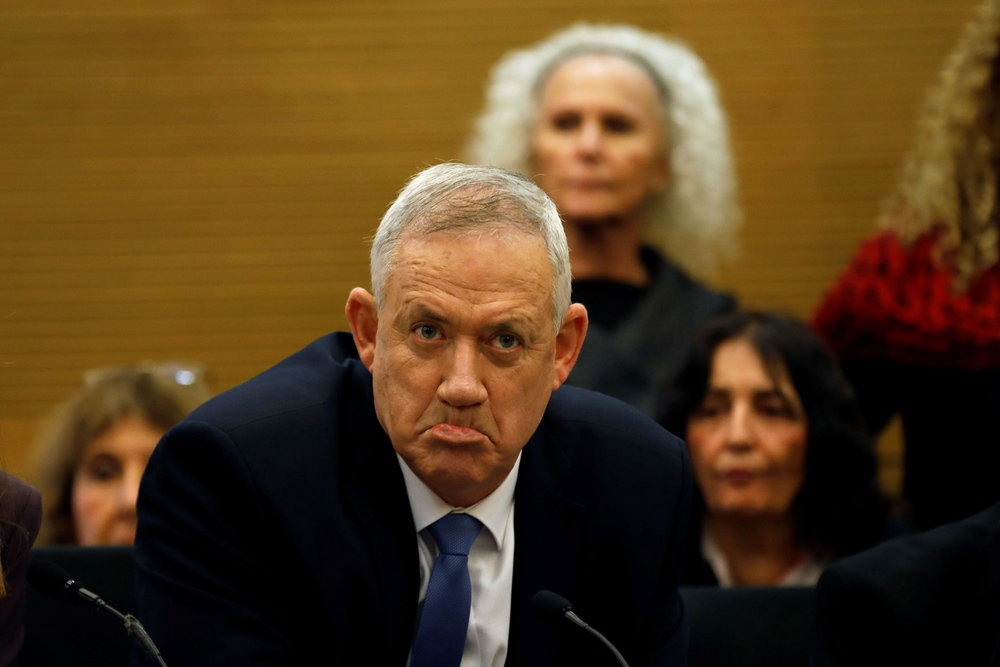00:42

Israel will hold an election on March 2, its third in less than a year, parliament decided on Thursday after Prime Minister Benjamin Netanyahu and his main rival failed to parlay the previous two ballots into a new coalition government.
By a vote of 94 in favor to none opposed, lawmakers approved a motion dissolving parliament and setting the new election date. It came hours after a final deadline passed to form a government following the last election in September.
In that ballot, and in the one prior in April, Netanyahu's conservative Likud party deadlocked with ex-general Benny Gantz's centrist Blue and White. Neither managed to muster enough support in the 120-seat Knesset for a stable coalition.
The next election carries a heavy economic price: It will be well into 2020 before a new budget is passed, which will mean months of cutbacks that will weigh on growth. At the same time, it will be held in the shadow of a corruption indictment handed down against Netanyahu recently.

Benny Gantz, leader of Blue and White party, attends a committee meeting at the Knesset, Israel's parliament, in Jerusalem, December 11, 2019. /Reuters Photo
Benny Gantz, leader of Blue and White party, attends a committee meeting at the Knesset, Israel's parliament, in Jerusalem, December 11, 2019. /Reuters Photo
Early polls suggest Netanyahu's Likud party could still be near level with Gantz's Blue and White. Even before the new election was confirmed, the two men were trading blame and launching their campaigns.
"They forced new elections upon us," Netanyahu said in a video published by his Likud party, referring to Gantz's Blue and White party. "In order to stop it recurring again there is only one thing to do and that is to win, and to win big time."
"We will be going into a third election cycle today because of Netanyahu's attempt to obtain immunity," Gantz told lawmakers, referring to the premier's legal troubles. "We must stand in opposition to this."
The new elections are deeply unpopular among the electorate, with the Manufacturers Association of Israel estimating the three elections could cost the economy a total of 12 billion shekels (3.4 billion U.S. dollars). A poll published by Israel's Channel 13 TV found that 41 percent of people thought Netanyahu was to blame for the impasses, with only five percent blaming Gantz.

Israeli soldiers run as a tire burns during a Palestinian protest over a U.S. decision on Jewish settlements, in Hebron in the Israeli-occupied West Bank, December 9, 2019. /Reuters Photo
Israeli soldiers run as a tire burns during a Palestinian protest over a U.S. decision on Jewish settlements, in Hebron in the Israeli-occupied West Bank, December 9, 2019. /Reuters Photo
Netanyahu's fate in question
In the two previous national elections, Netanyahu's opponents focused on the three corruption investigations against him that included allegations he dispensed favors to media barons in a push for more favorable media coverage. But this time, Israel's longest-serving leader is running under the cloud of a criminal indictment announced last month.
Denying any wrongdoing, Netanyahu, 70, has accused legal authorities of attempting a "coup" aimed at ousting a popular right-wing leader. Critics alleged that Netanyahu was trying to undermine the rule of law and set an election campaign theme portraying himself as the victim of "deep state" conspiracy.
Read more:
Israel's Netanyahu faces court, party challenges after indictment
The Heat: Israel's political crisis

As prime minister, Netanyahu is under no legal obligation to resign as a result of the indictment, and while in office he can ask the legislature to grant him immunity from prosecution.
As caretaker premier, Netanyahu would remain in the post until a new government is formed – a process that could stretch months past a March ballot if what is likely to be tortuous coalition-building is taken into account.
"There are only three reasons for this election – bribery, fraud and breach of trust," Blue and White lawmaker Yair Lapid told the Knesset, alluding to the charges against Netanyahu.
Vowing to "win big" at the polls, Netanyahu has described himself as best-placed to deal with Israel's many security threats. He has cited U.S. backing for proposed Israeli annexation of occupied land where Palestinians seeks statehood as a reason for Gantz to partner up with him in government.
"They (Blue and White) want to hide the fact that they did everything to avoid creating a national-unity government that would have annexed the Jordan Valley and applied Israeli sovereignty to the settlements of Judea and Samaria (West Bank)," Netanyahu said in video statement on social media. "It was they who imposed a new election on us."
Before the elections Netanyahu has an internal challenge to navigate, with his Likud party announcing on Wednesday it plans to have leadership primaries on December 26.
His only confirmed rival, Gideon Saar, said it was time for a change to "end the ongoing political crisis." Whether he will be able to gain the support of the majority of the party, many of whom are fiercely loyal to Netanyahu, remains doubtful.
(With input from Reuters, AFP)
(Cover: Israeli Prime Minister Benjamin Netanyahu checks time before delivering a statement at the Knesset, Israel's parliament, Jerusalem, December 19, 2018. /Reuters Photo)